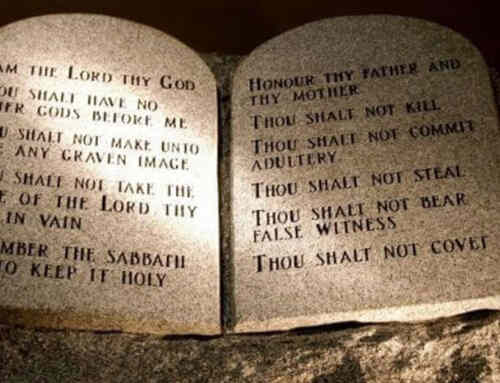The act of giving tithes or ten percent started with the Israelites in Leviticus 27:30-34, Numbers 18:26-29, Deuteronomy 12:17. Deuteronomy 14:22 seems to say that you are to tithe of all of the produce. This was all part of the law given to the Israelites. The purpose of tithing was to give sustenance to the Levites who were charged with taking care of the Tabernacle and not given a share in the land. Consequently, they had no way of growing food or raising animals to provide for their daily needs of living. When Jesus calls his disciples in the New Testament (Matthew 10:8-10), he tells them (and us) to give freely.
The Jewish law concept of tithing is mentioned in the New Testament in Matthew 23:23 when Jesus says, “Woe to you, scribes and Pharisees, hypocrites. For you tithe mint and dill and cumin and have neglected the weightier provisions of the law: justice and mercy and faithfulness, but these are the things you should have done without neglecting the others.” He is making a contrast between the importance of giving of our possessions (money or things) and living our lives in ways that make other people’s lives better. It appears again in Luke 18:12, when the tax-gatherer says that he tithes. The Lord’s response is “that everyone who exalts himself shall be humbled and he who humbles himself shall be exalted.”
There is nowhere in the New Testament that God, Jesus or the apostles required – or even suggested – that Christians tithe money or goods.
Giving for giving’s sake does little for our spiritual growth. Some churches, however, have used tithing to get money to support their pastors/churches.
Matthew 6:19-21 states that we are not to lay up treasures upon earth where moth and rust destroy and where thieves break in and steal but lay up for ourselves treasures in heaven where neither moth nor rust destroys and where thieves do not break in or steal, for where our treasure is, there will be our heart also. 1 Timothy 6:7-19 tells us that if we have food and clothing, we should be content, and those who want to get rich fall into temptation; that our confidence should be in God who generously gives us everything for our enjoyment. The size of our offering is a measure of our love and zeal in the Lord’s service. We can offer our time and influence, as well as financial resources on a voluntary basis. Matthew 22:37-39 summarizes the 10 Commandments down to two: 1. Love the Lord our God with all our heart, and 2. love our neighbor as ourselves.
2 Corinthians 9:6-7 tells us that God loves a cheerful giver. In Luke 18:22-27, our Lord tells a man that he should sell all he owns and give to the poor, so that he may have treasure in heaven. The point is to give to the Lord all that we do not need to sustain our lives. This means not only money, but time, talent, preferences, etc. If we are not doing this, then we are not following what the Lord has asked us to do.
There is a saying that sometimes God would be happier with a 10 percent tithe than He would be with the “all” we claim to have given, because 10 percent might be more than what we call “all.”
Additional Resource:
Christian Questions Podcast
Episode #1040: “Do Tithes and Offerings Belong in Christianity?”
Understanding tithing and establishing Christian giving
Preview Video
CQ Rewind Show Notes















